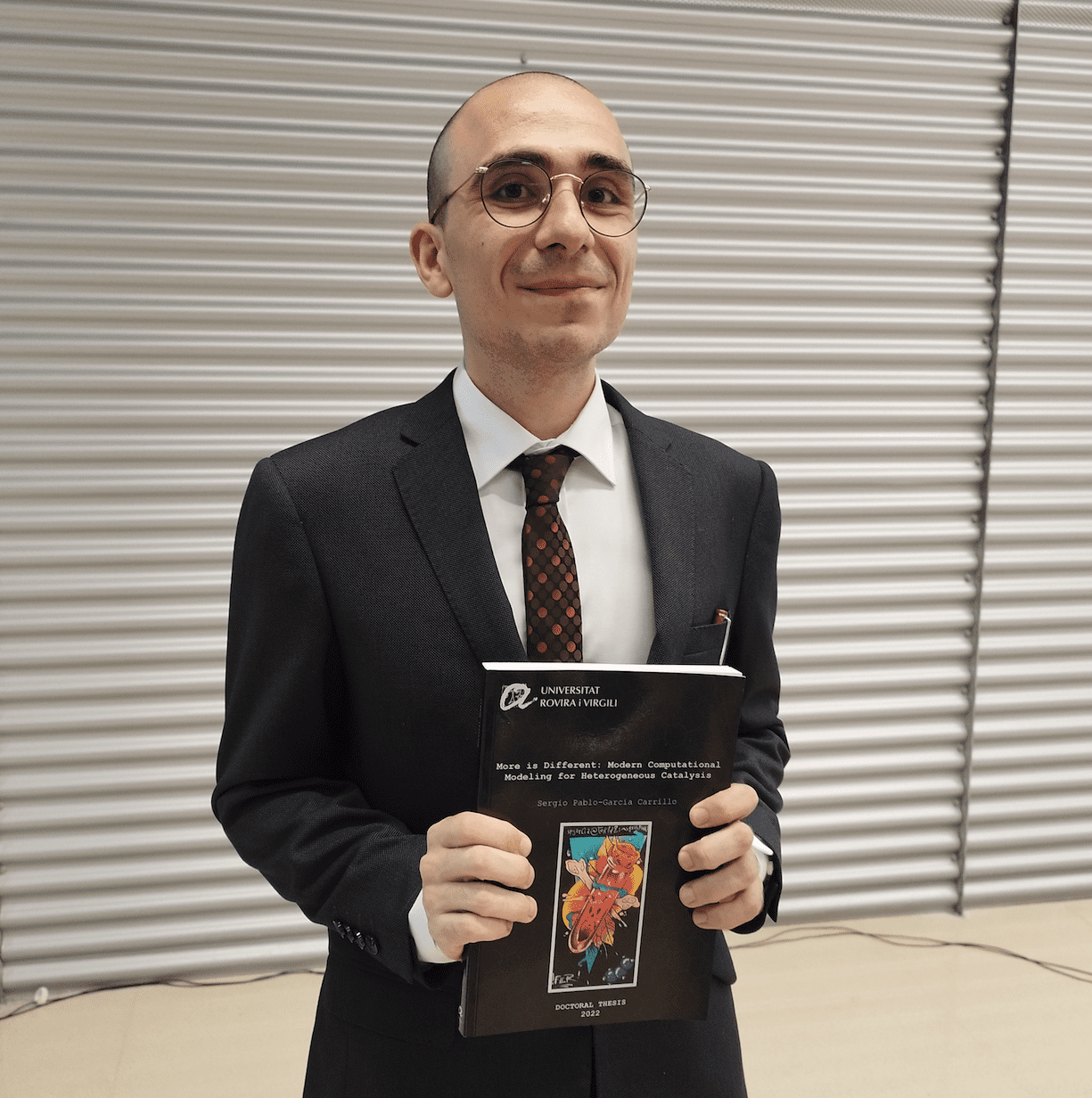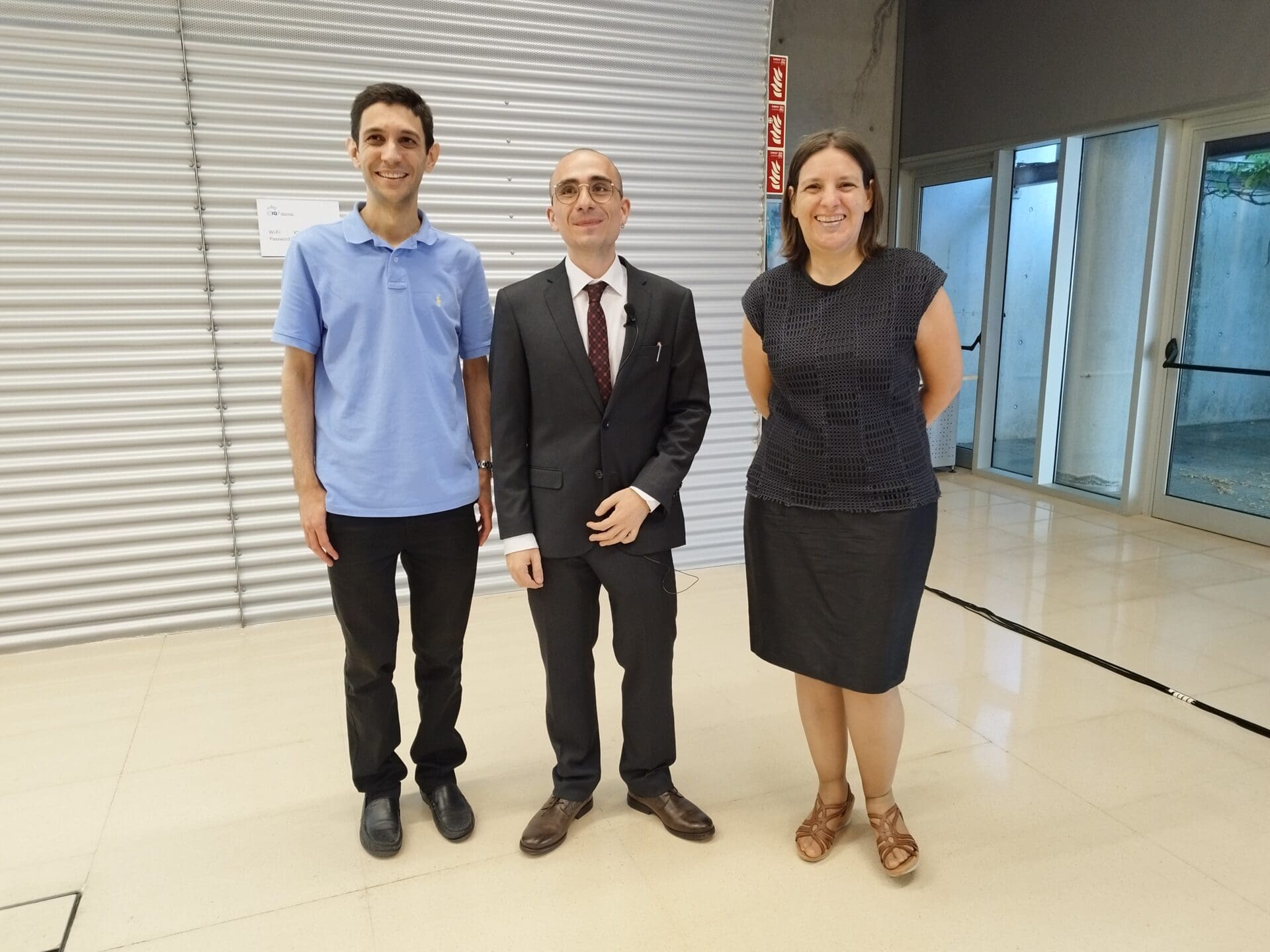Bravo Dr. García!
Sergio García Carrillo, PhD student under the supervision of Prof. Núria López (ICIQ), has defended his PhD thesis entitled “More is Different: Modern Computational Modeling for Heterogeneous Catalysis” (assigned to the Inorganic and Physical Chemistry Department of the Universitat Rovira i Virgili) publicly on July 11th.
The members of the evaluation committee were: Prof. Alán Aspuru-Guzik (University of Toronto), Dr. Jordi Ribas Ariño (Universitat de Barcelona), and Dr. Maria Besora Bonet (Universitat Rovira i Virgili).
Dr. García was born in Cordoba, and when he was 10 moved to Badalona. He studied Chemistry at Universitat de Barcelona and then did a master’s in Atomistic and Multiscale Computational Modelling in Physics, Chemistry and Biochemistry at the same university. In 2018, he joined Prof. López’s group to pursue his doctorate. In his spare time, he enjoys reading, playing video games, watching movies and listening to music – he started playing the guitar during the Covid lockdown.
What is your thesis about?
I worked on the automatization of simulation processes. If we need to launch new simulations, I worked on the procedure so that the simulations could run automatically, so that we don’t need someone working on it. I have also worked in data analysis using Machine Learning and statistical analysis techniques, trying to connect computational with experimental results. At the end, automatizing simulations will help reduce the number of calculations needed. By generating better models, we can optimise the work done in the labs and get a better understanding of how reactions work at an atomic level.
What is your goal as a scientist?
To not get bored. I want something interesting to do, I really don’t have a big goal to achieve, just spend my days doing things I like.
From the lessons learnt during your PhD, which one do you value the most?
To be robust when facing challenges: be ready and resilient to different situations. However badly things can turn out, you can always try again. I enjoy the feeling of overcoming difficulties.
What do you wish you had known at the beginning of your PhD?
I wish I would have had better programming skills, especially in Python!
What ICIQ moment you’ll never forget?
When I saw the cluster for the first time, I thought it was quite impressive to have this kind of computational power in-house.
Have you ever been emotional over an experiment or simulation?
Yes, we were working on a project that wasn’t yielding good results. After many problems and simulations, we got a result and asked the experimentalists to try it out in the lab. When they came back, the experimental and computational results matched!
What’s next?
I’m joining the Aspuru-Guzik Group at the University of Toronto, hopefully, to work on the automatization of a laboratory.
If you were to become a piece of lab equipment, what would you be?
A keyboard, it would be impossible to work in computational science without a keyboard!
Chemistry is… a way to understand the world.
Do you have a favourite molecule?
Propylene, I have worked with it during all my thesis.
Can you tell us something about you that most people won’t know?
I have a dog named Hartree, after the unit of energy.
Related news

Let's create a brighter future
Join our team to work with renowned researchers, tackle groundbreaking
projects and contribute to meaningful scientific advancements








 20-12-2024
20-12-2024 


















